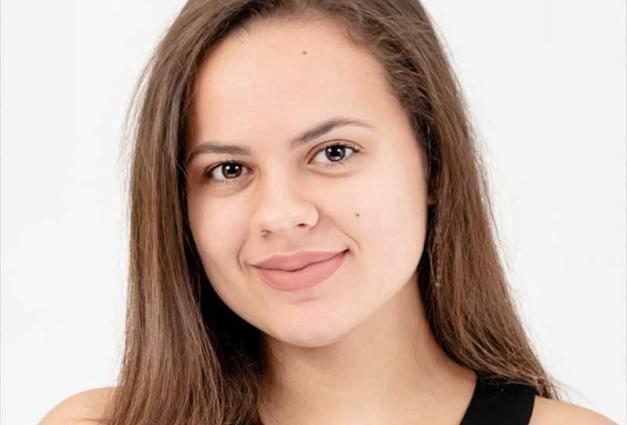This month we speak with SPSP's Student Committee Chair, Hannah Moshontz. Hannah shares her experience organizing a symposium and helps demystify this key convention format.
What exactly is a symposium?
A symposium is one of the formats people use to share their scientific work at the SPSP Annual Convention. It is a group presentation of 3 or 4 talks around the same theme, and they each last 75 minutes. There are about 80 symposia offered at each convention.
Which symposium did you organize?
I organized a symposium on the theme of responses to difficulties in goal pursuit. I co-organized with Anne Holding, a graduate student and clinical psychologist. Anne and I met at an SPSP 2016 poster session. We both study goal disengagement, though from different angles.
How did you decide on the topic? Is it related to your research area?
Yes, this topic is my primary line of research. My co-chair and I knew vaguely what the topic would be, and as we got abstracts together, we shaped the topic more specifically.
How did you decide on the participants and how did you approach them?
We consulted our advisors and other faculty and decided to ask people who we thought were doing excellent work central to this literature. We aimed high. To our knowledge, there hadn't been a symposium on the topic of goal disengagement or quitting. We then used our connections through our advisors. In Anne's case, this led to discussions with one senior researcher about ways to collaborate in the future.
How long did this process take, and how much of a time commitment was it?
It unfolded over several months via email. By starting early, we saved a lot of time and stress. The writing itself was time-consuming, but it was comparable to creating a poster submission. As co-chairs, we not only wrote our own abstracts, but we also suggested revisions on the other abstracts (e.g., so that they used similar language and terms, and emphasized the same themes). We also wrote the main abstract, and came up with the title with input from the other authors.
Did you have any support throughout the process?
Yes, both of our primary advisors gave us input and advice.
What is the most useful aspect of organizing a symposium?
The most exciting part for me is that I get to see talks that I really want to see and that will be valuable to me. This is my primary area of research and it is understudied. I have never attended a symposium on this topic, and I've actually never seen a talk given on it! So I'm really excited for the event itself.
It was also fun to collaborate with my co-chair in writing and revising, and I think that the connections we made with senior researchers and other students interested in this research will prove useful later in our careers. It was a fun and useful intellectual exercise to see how other people think about and approach this topic. I was surprised to find that I have a specific conception of my phenomenon that is not necessarily shared by other researchers in this field. Seeing that is incredibly useful, and helps me think broadly about the construct.
Any advice for a PhD student wanting to organize a symposium?
Come in with a pretty clear idea of the topic, and present this topic to the people you ask to participate. I think a strong symposium is one that brings together research that truly coheres around one theme, but might sound different or be superficially different (e.g., in terms of the population or study methodology). The role of the organizer(s) is to bring these projects together and make a compelling case for them as a whole.
A more general piece of advice related to the symposium: There is a potential to become competitive with other researchers and especially other students who do work that is similar to yours. I strongly advise students not to compete with other students in your area. Be deliberately cooperative instead. My co-chair Anne approached me at SPSP after seeing my poster abstract. I am so glad she did, and so glad that she did so with a friendly and collaborative spirit. We keep each other informed about our ongoing research projects, and we exchange papers that we each come across. Now we have this symposium that we've created together. My guess is that we will remain in touch throughout our careers, and formally collaborate on projects in the future.
Thank you Hannah!




